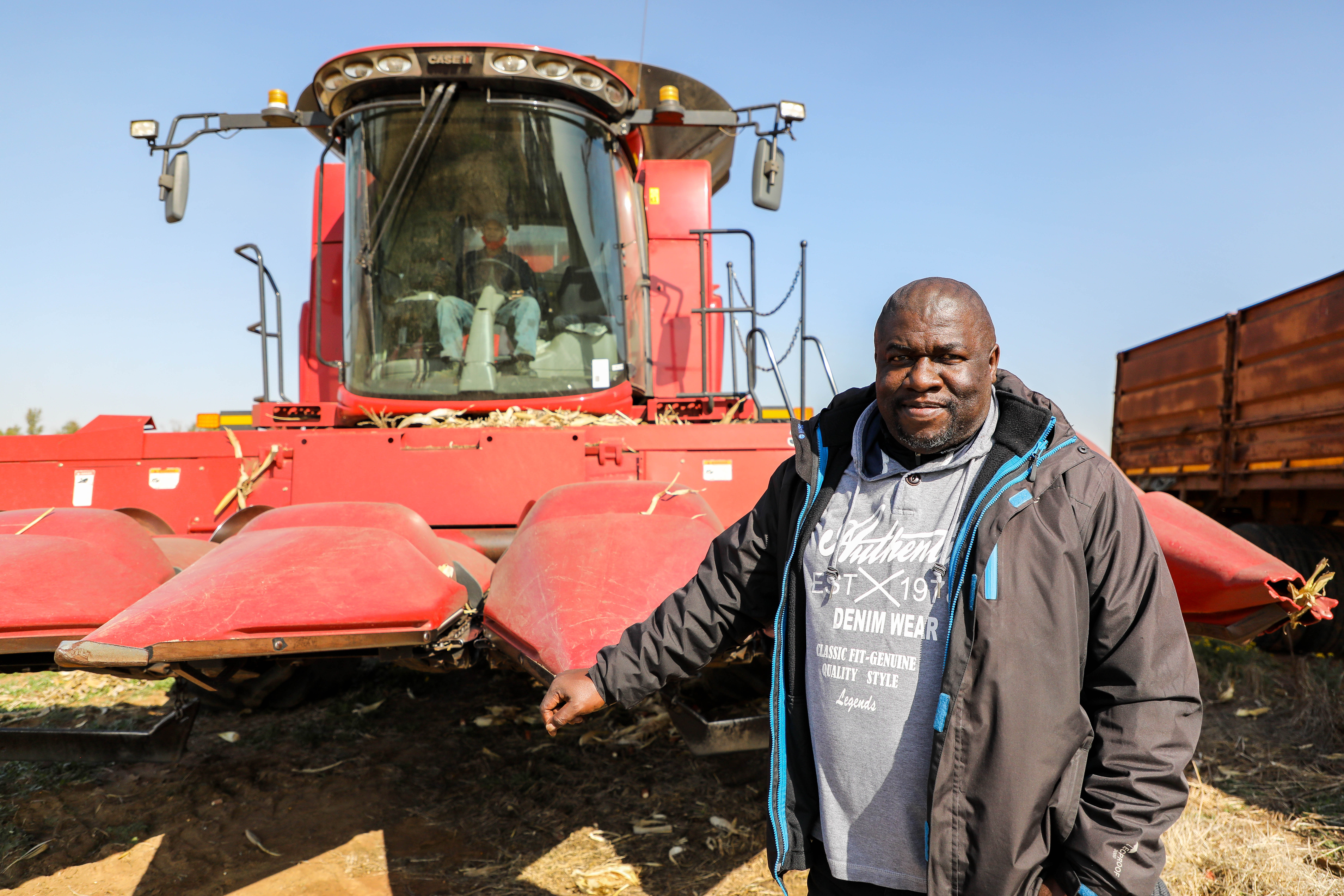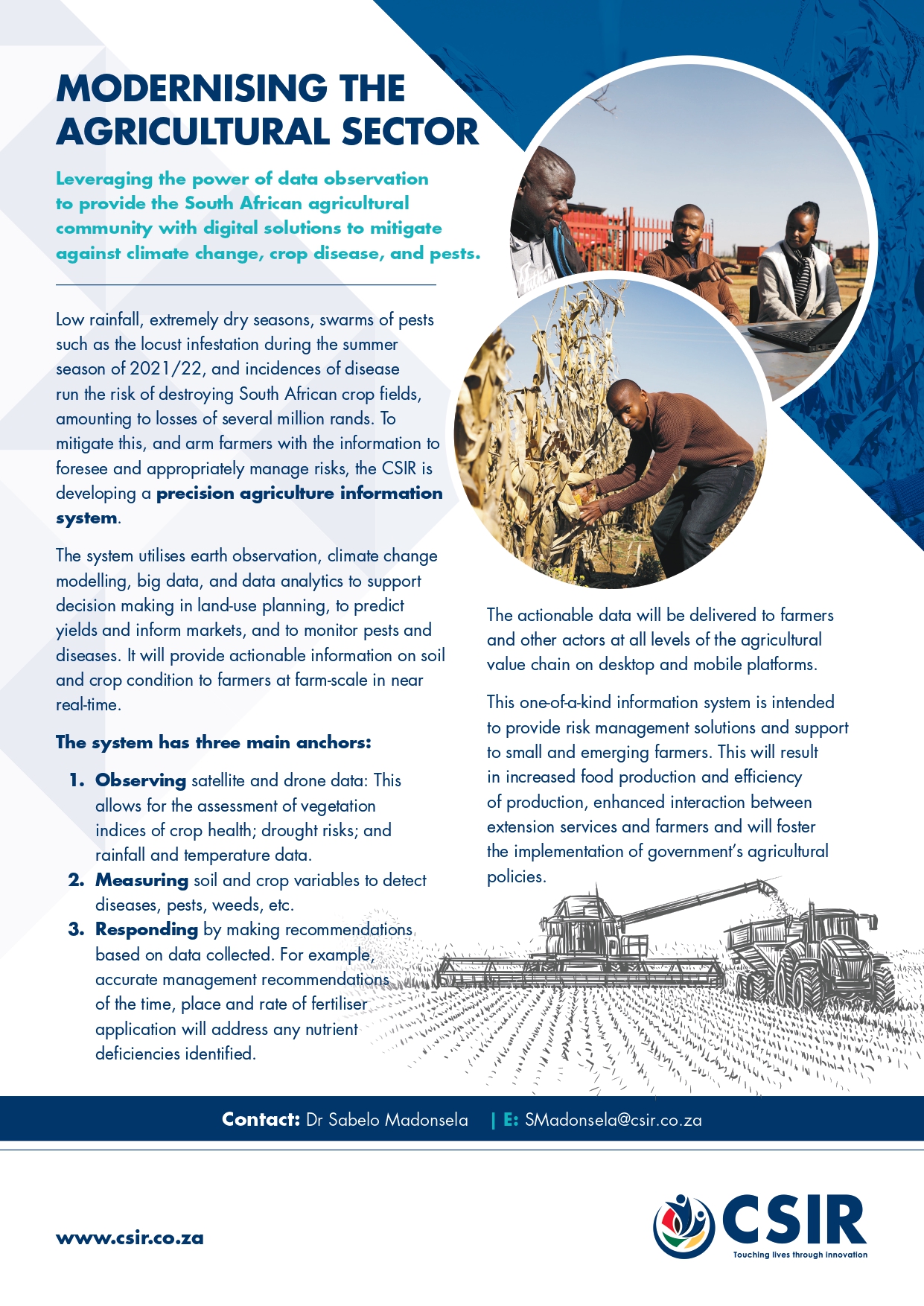Advanced Search
Search Results
Request for Quotation (RFQ) for the servicing, recommission & recertification of fume cupboards
Request for Proposals (RFP) The Provision of Medical Scheme Brokerage Services to the CSIR for a period of 3 years.
The CSIR’s Advanced Internet of Things (IoT) group specialises in research and development on IoT technologies.
“Science, technology, engineering, and mathematics (STEM) inspires young people to generate new technologies and ideas that are crucial to developing sustainable solutions to real-world challenges,” said doctoral researcher Rivalani Baloyi from the Council for Scientific and Industrial Research (CSIR).
Baloyi and other researchers were engaging learners and encouraging them to take up careers in science during the 2022 National Science Week (NSW) which ran from 1 to 6 August 2022. NSW is an initiative of the Department of Science and Innovation that aims to celebrate science and its role in society.
Request for Proposals (RFP) for the development of the Special Forces training and doctrinal publications
Enhancing crop management, using drones
Leveraging the power of data observation to provide the South African agricultural community with digital solutions to mitigate against climate change, crop disease, and pests.
Low rainfall, extremely dry seasons, swarms of pests such as the locust infestation during the summer season of 2021/22, and incidences of disease run the risk of destroying South African crop fields, amounting to losses of several million rands. To mitigate this, and arm farmers with the information to foresee and appropriately manage risks, the CSIR is developing a precision agriculture information system.
The system utilizes earth observation, climate change modelling, big data, and data analytics to support decision making in land-use planning, to predict yields and inform markets, and to monitor pests and diseases. The system will provide actionable information on soil and crop condition to farmers at farm-scale in near real-time.
The system has three main anchors:
- satellite and drone data. This allows for the assessment of vegetation indices of crop health; drought risks; and rainfall and temperature data.
- soil and crop variables to detect diseases, pests, weeds, etc.
- by making recommendations based on data collected. For example, accurate management recommendations of the time, place and rate of fertiliser application will address any nutrient deficiencies identified.
The actionable data will be delivered to farmers and other actors at all levels of the agricultural value chain on desktop and mobile platforms. This one-of-a kind information system is intended to provide risk management solutions and support to small and emerging farmers. This will result in increased food production and efficiency of production, enhanced interaction between extension services and farmers and will foster the implementation of government’s agricultural policies.
Additional information on the CSIR’s crop management information system can be found further down this page. A contact form is also available for your convenience, should you wish to engage further with the CSIR’s precision agriculture experts.
South Africa’s worrying state of wastewater management requires urgent public-private partnerships to accelerate technology development to improve the current situation, says Dr Rembu Magoba, Manager of the Council for Scientific and Industrial Research (CSIR) Water Research Centre.
Dr Magoba was speaking at the Africa Water, Waste and Green Energy Conference held in Cape Town recently. Government representatives, business leaders and decision-makers from African countries attended the conference. The country's wastewater treatment system has worsened over the years since 2013. 39% of assessed wastewater treatment systems are now classified as critical, a drop from 29% in 2013.







